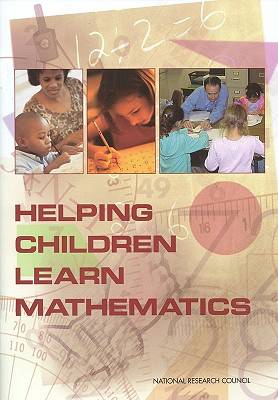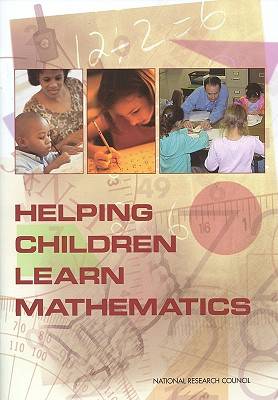
Je cadeautjes zeker op tijd in huis hebben voor de feestdagen? Kom langs in onze winkels en vind het perfecte geschenk!
- Afhalen na 1 uur in een winkel met voorraad
- Gratis thuislevering in België vanaf € 30
- Ruim aanbod met 7 miljoen producten
Je cadeautjes zeker op tijd in huis hebben voor de feestdagen? Kom langs in onze winkels en vind het perfecte geschenk!
- Afhalen na 1 uur in een winkel met voorraad
- Gratis thuislevering in België vanaf € 30
- Ruim aanbod met 7 miljoen producten
Zoeken
Helping Children Learn Mathematics
National Research Council, Division of Behavioral and Social Sciences and Education, Center for Education, Mathematics Learning Study Committee
Paperback | Engels
€ 26,95
+ 53 punten
Omschrijving
Results from national and international assessments indicate that school children in the United States are not learning mathematics well enough. Many students cannot correctly apply computational algorithms to solve problems. Their understanding and use of decimals and fractions are especially weak. Indeed, helping all children succeed in mathematics is an imperative national goal. However, for our youth to succeed, we need to change how we're teaching this discipline. Helping Children Learn Mathematics provides comprehensive and reliable information that will guide efforts to improve school mathematics from pre--kindergarten through eighth grade. The authors explain the five strands of mathematical proficiency and discuss the major changes that need to be made in mathematics instruction, instructional materials, assessments, teacher education, and the broader educational system and answers some of the frequently asked questions when it comes to mathematics instruction. The book concludes by providing recommended actions for parents and caregivers, teachers, administrators, and policy makers, stressing the importance that everyone work together to ensure a mathematically literate society.
Specificaties
Betrokkenen
- Auteur(s):
- Uitgeverij:
Inhoud
- Aantal bladzijden:
- 52
- Taal:
- Engels
Eigenschappen
- Productcode (EAN):
- 9780309084314
- Verschijningsdatum:
- 31/08/2002
- Uitvoering:
- Paperback
- Formaat:
- Trade paperback (VS)
- Afmetingen:
- 173 mm x 249 mm
- Gewicht:
- 136 g

Alleen bij Standaard Boekhandel
+ 53 punten op je klantenkaart van Standaard Boekhandel
Beoordelingen
We publiceren alleen reviews die voldoen aan de voorwaarden voor reviews. Bekijk onze voorwaarden voor reviews.









